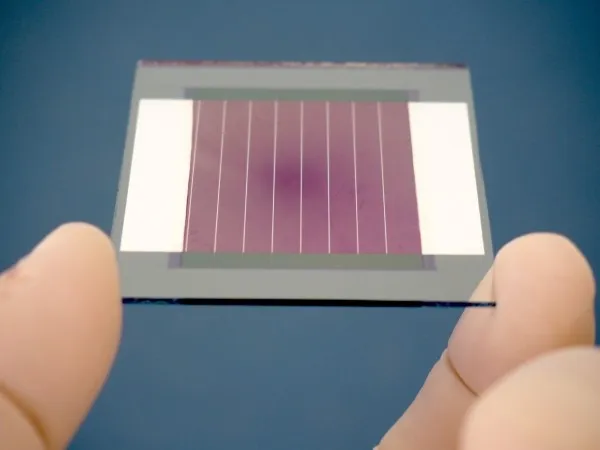Efficiency record for an organic PV mini module
- Organic photovoltaics has considerable benefits, such as environmentally friendly production and flexible modules.

Yet, to advertise market readiness, its efficiency has to continue to be boosted. Researchers at the Fraunhofer Institute for Solar Energy Systems ISE have actually achieved a qualified performance value of 13.94 percent for a mini module, which is 9 square centimeters in dimension and has been created with organic solar cells. That's a brand-new world record in this group.
In September 2020, Fraunhofer ISE already damaged a record for a cell that was 1 square centimeter in size. The research team has actually now incorporated nine of these organic solar cells to create a mini module and have actually achieved a record efficiency worth for mini modules. Dr. Uli Würfel, Head of the Department Organic and Perovskite Photovoltaics at Fraunhofer ISE and lead researcher at the Freiburg Materials Research Center (FMF) at the University of Freiburg, is directing the project: "We are actually happy at exactly how the research study is creating so favorably and we're optimistic that we will be able to make additional renovations in the coming months."
The possibility of new organic absorber products is first being examined on little locations in the lab, but now researchers should discover methods to totally tap into this capacity by producing effective cells with larger areas. The best goal is to utilize roll-to-roll approaches, making it possible for solar modules to be produced in a comparable way as films.
In the present PV modules made of glass, the organic solar cells have actually been interconnected using laser structuring. "We were so delighted that it worked straightaway," states Dr. Jan Nekarda, Head of the Department Production Technology-- Structuring and Metallization at Fraunhofer ISE in regard to the procedure. "Now we're dealing with remaining to minimize scribe width."
The work has been carried out as part of an inner research study project, which improves the results of the project "H2OPV - Organic Photovoltaics to Cover Water Reservoirs", which was funded by the German Federal Ministry for Economic Affairs and Energy (BMWi).
Also read

